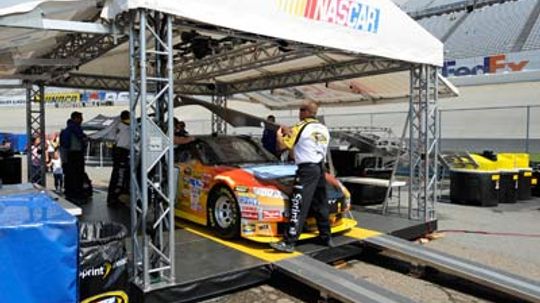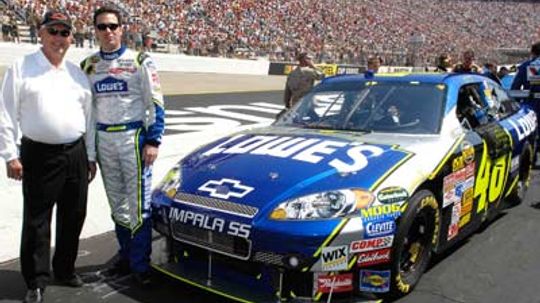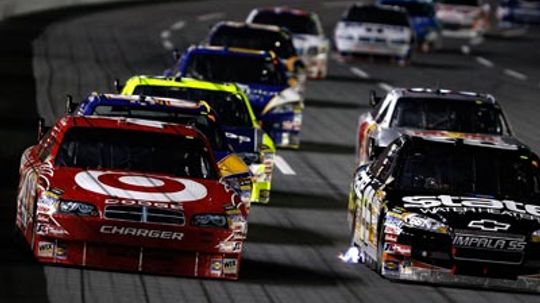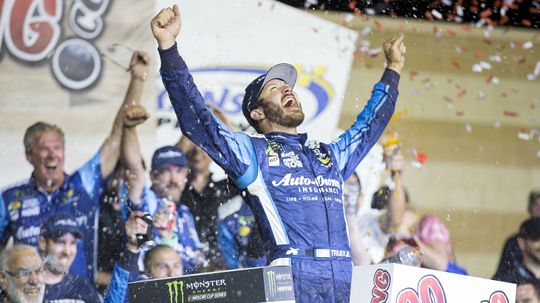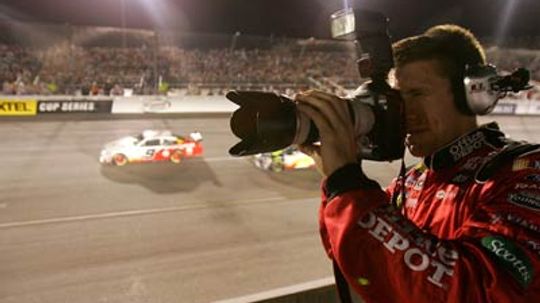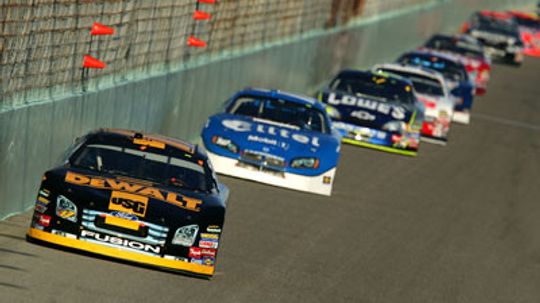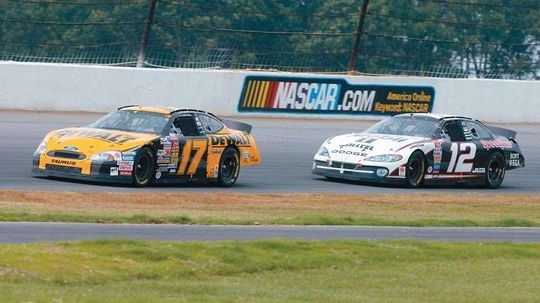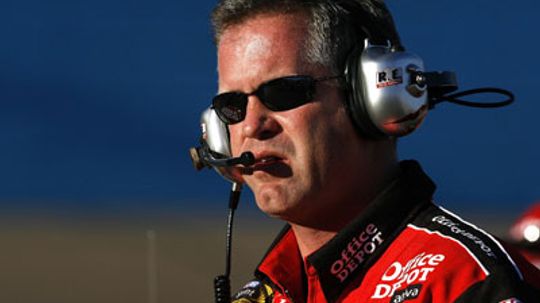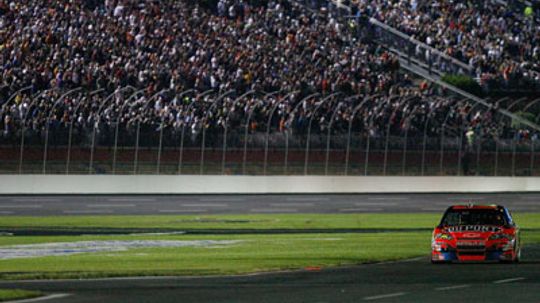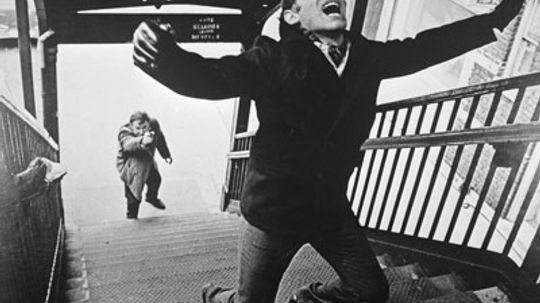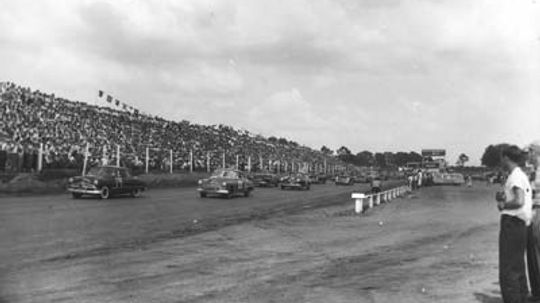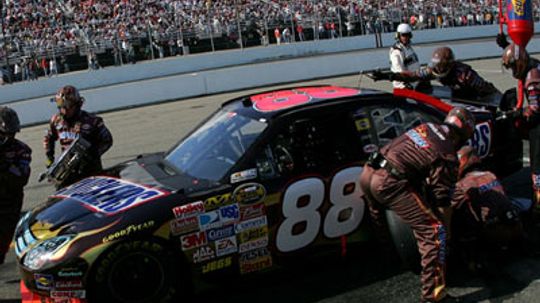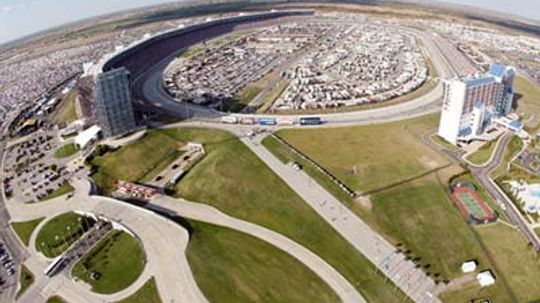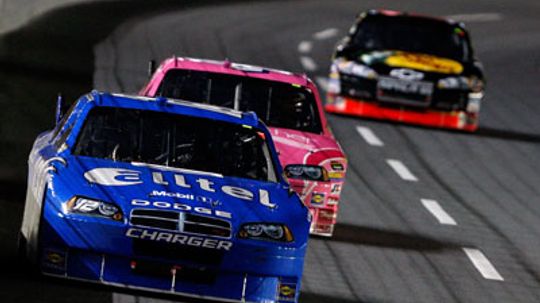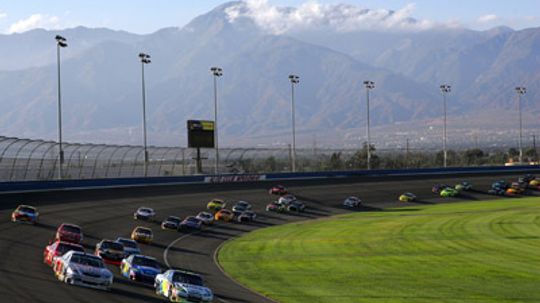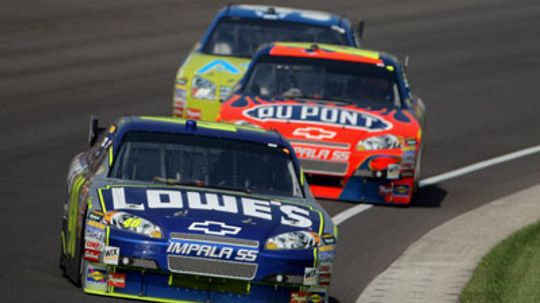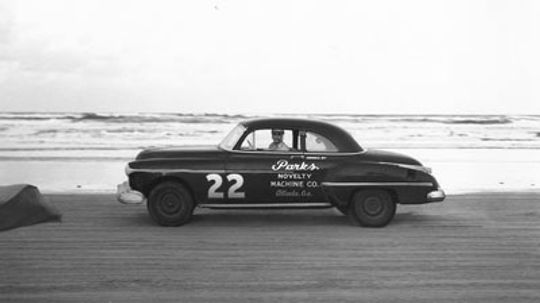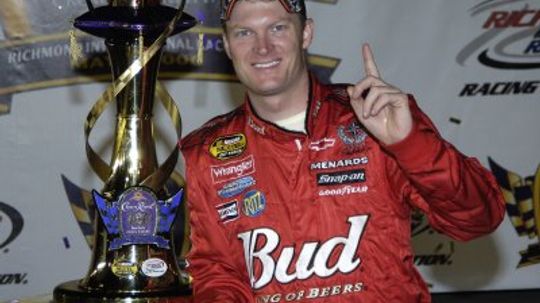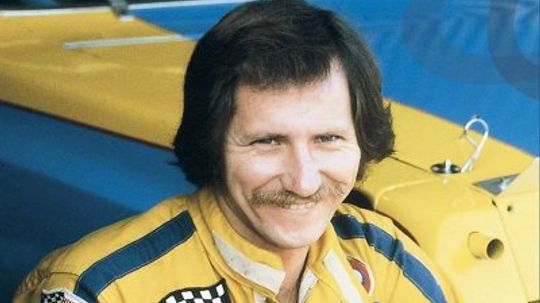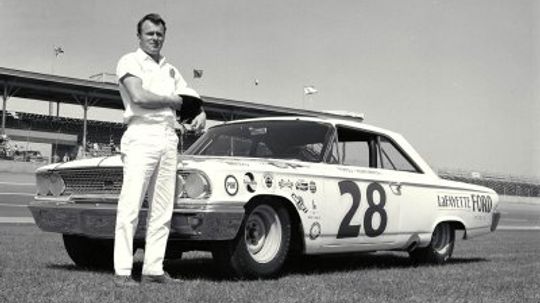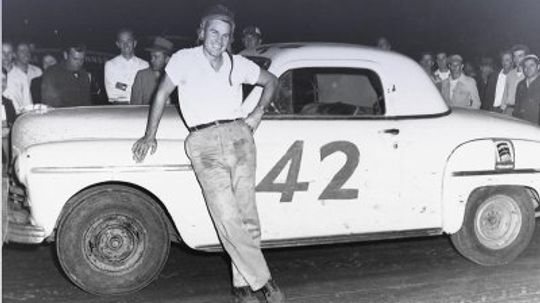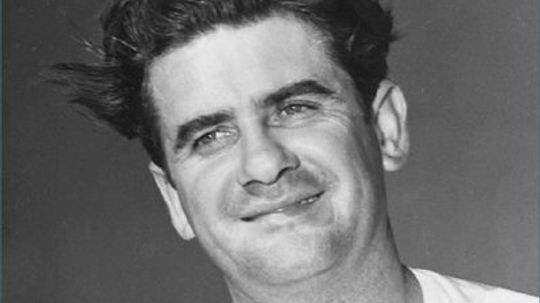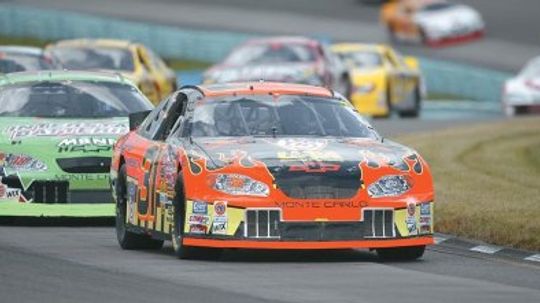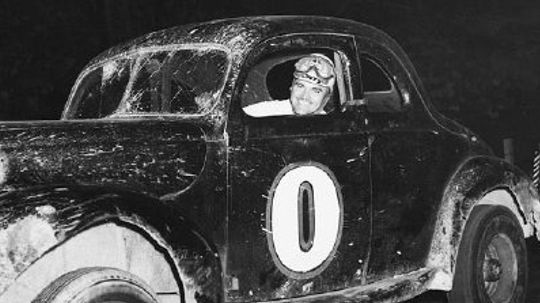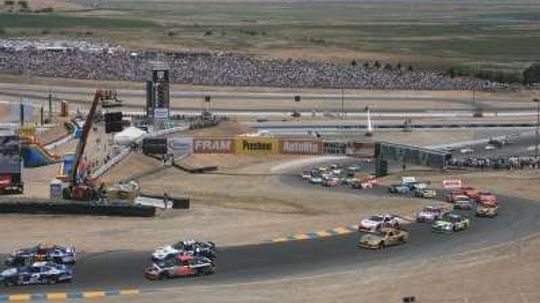NASCAR
NASCAR started in 1949 and has grown into one of the most popular sports in the world. Learn everything there is to know about NASCAR on the NASCAR Channel.
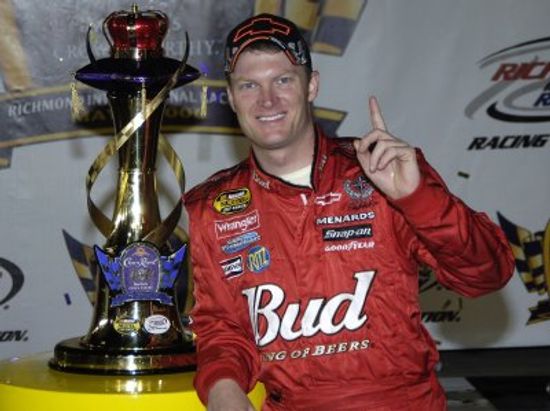
Dale Earnhardt Jr.
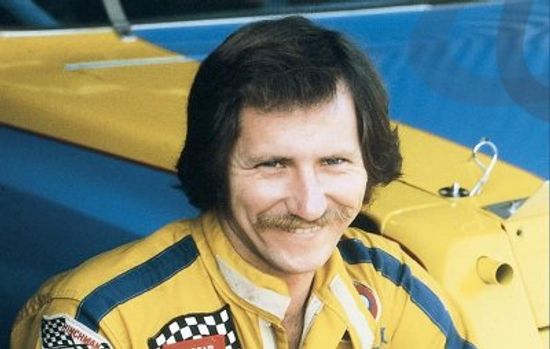
Dale Earnhardt
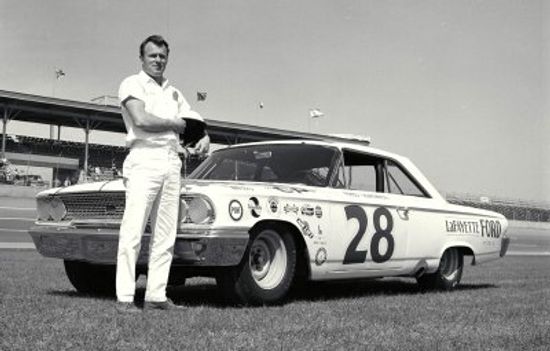
Fred Lorenzen
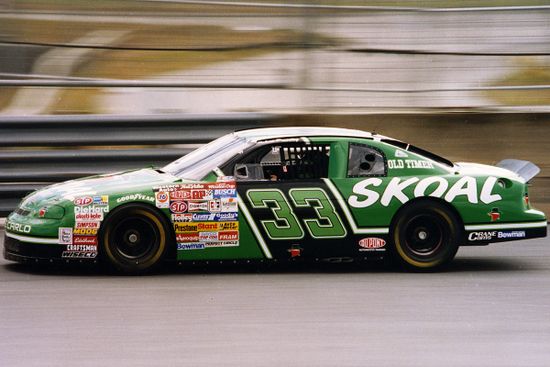
Why are green cars considered unlucky in NASCAR?
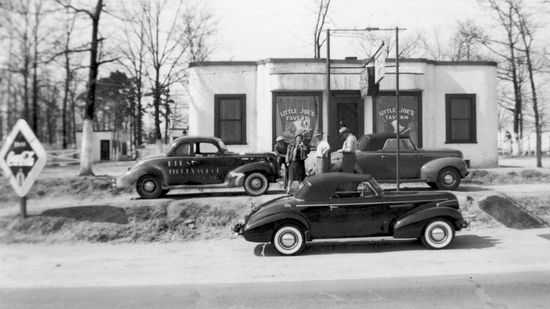
Did NASCAR Really Start With Bootleggers?
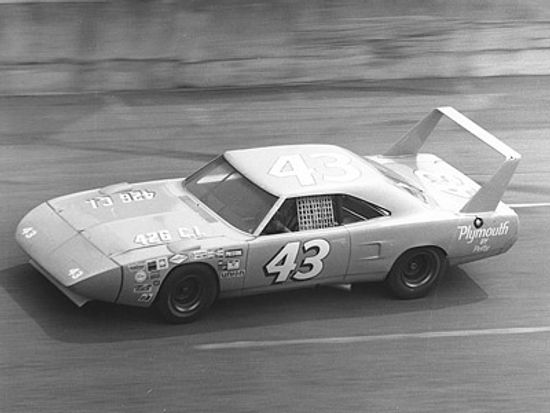
How does downforce help a NASCAR race car?
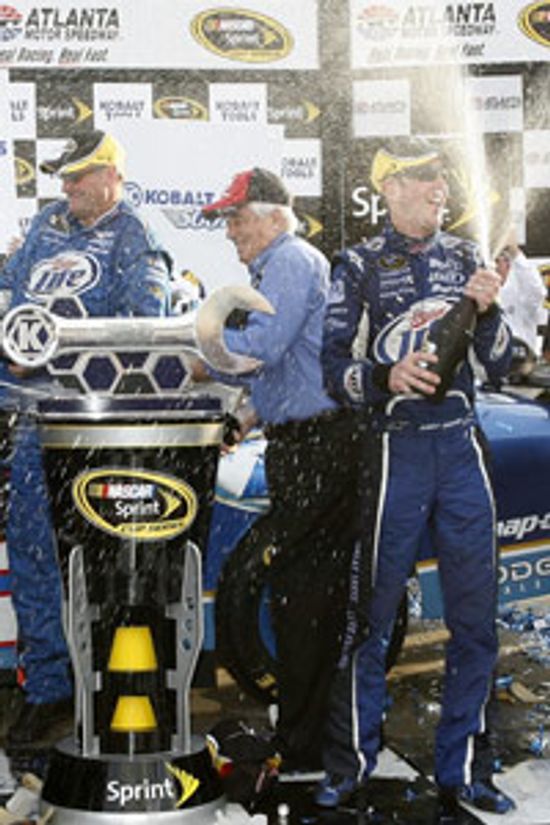
How Becoming a NASCAR Driver Works
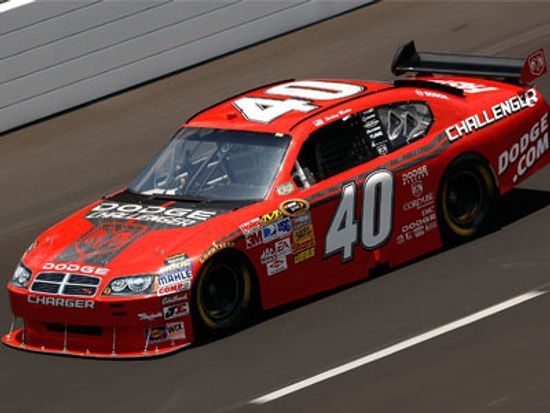
How does a NASCAR driver communicate with the pit crew?
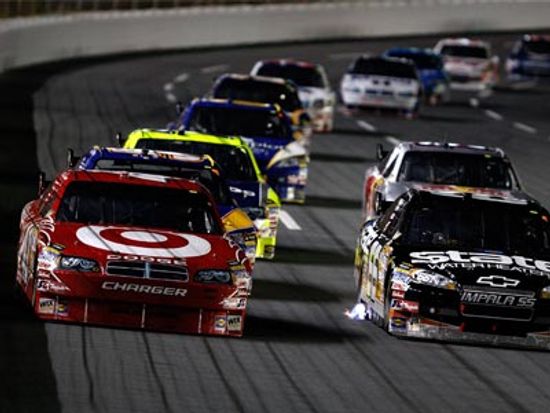
How the NASCAR Schedule Works
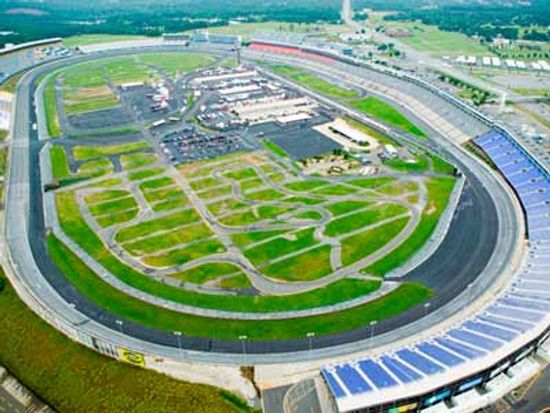
Are all stock car tracks the same?
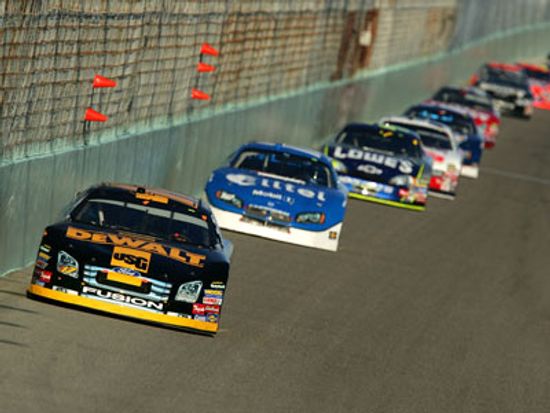
How NASCAR Racing Grooves Work
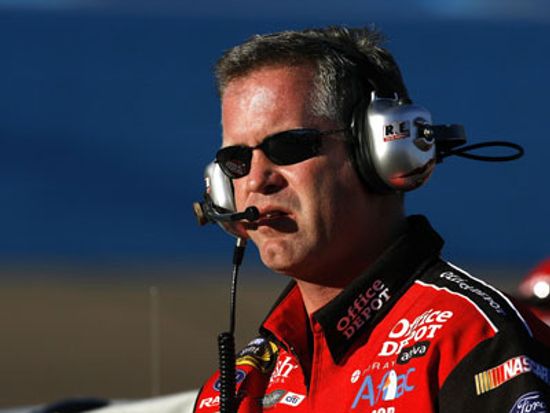
How does a NASCAR track physically change during a race?
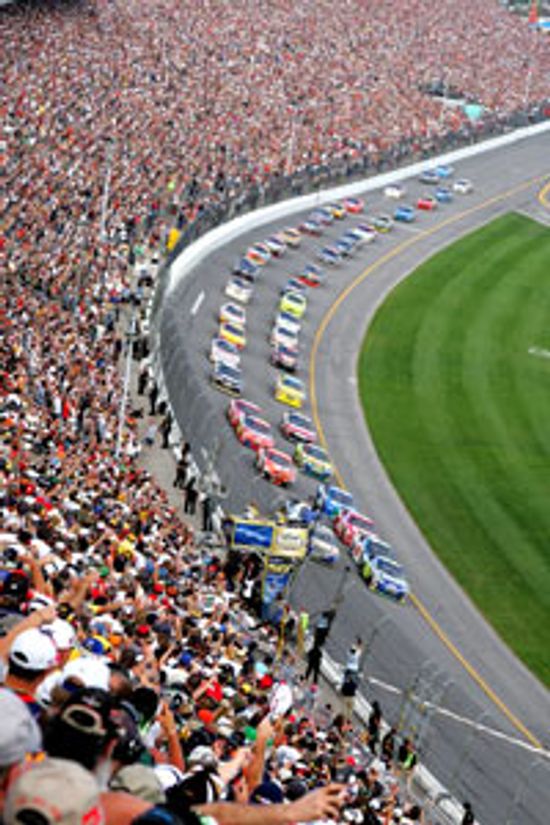
How Daytona Qualifying Works
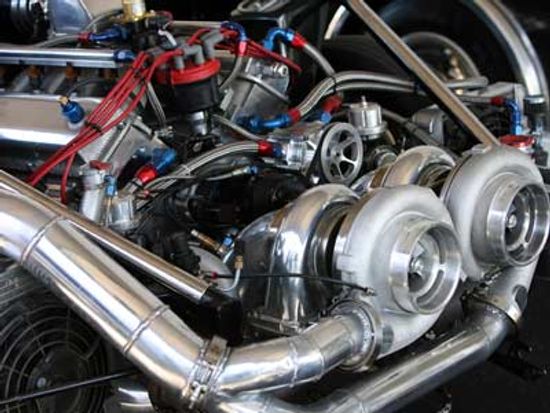
How Stock Car Telemetry Works
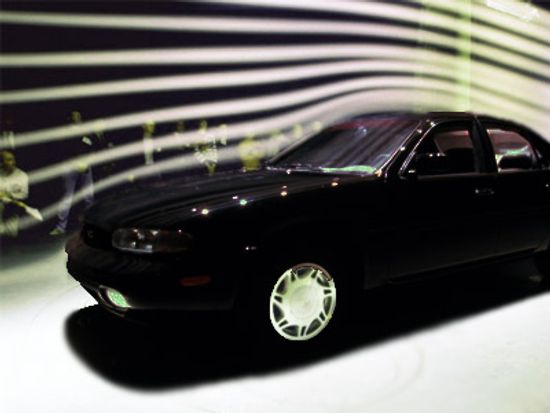
How Stock Car Aerodynamics Work
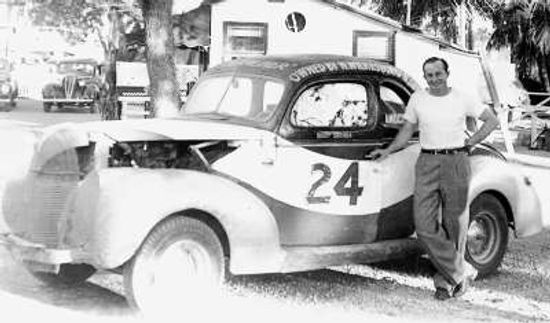
1947 NASCAR Recap
Learn More / Page 2
For NASCAR inspectors, race day begins long before the first fans arrive -- and they typically don't get to go home the moment the race is over, either. So what are these guys up to?
By Josh Briggs
NASCAR's Car of Tomorrow is loaded with improved safety features designed to keep the driver safe during high-speed impacts. Sounds great, right? Well then why are so many NASCAR drivers and fans resisting the change?
In the past, the NASCAR schedule included more than 60 races. Today, the number of NASCAR races has been reduced to fewer than 40. Why does it seem like NASCAR racing is a year-round sport?
By Josh Briggs
Advertisement
It used to be easy to find out how much money a NASCAR driver made after winning a race. But now it's not so simple.
Fast cars, loud noises, and larger-than-life superstars: NASCAR's got it all. But to keep a NASCAR fan, TV networks and radio stations have to bring their A-game to the broadcast.
By Tom Scheve
You know what it feels like when you're in the groove, right? Well, NASCAR drivers not only know what being in the groove feels like -- they know what the groove looks like, too.
Every profession has its own set of required tools. Dentists, mechanics, landscapers, TV repairmen -- they all have specific tool needs. But what essential tools does a NASCAR pit crew use on race day?
Advertisement
Considering that more than 40 cars spin around a NASCAR track at triple-digit speeds on race day, it shouldn't surprise you that the asphalt covering the track undergoes several physical changes during a rae.
By Josh Clark
Considering the volatility of gas prices these days, hypermiling seems like a sensible way to drive. Who knew it was so easy to double your gas mileage?
By Josh Clark
A loose or tight NASCAR race is something that drivers and crew chiefs need to correct quickly. The problem is due to oversteering and understeering the race car and can cost drivers valuable time -- and easily lead to crashes.
By Josh Clark
In the early days of NASCAR, there were few rules for teams to follow. Because of this, drivers pushed the envelope and tried every trick in the book. Now, there are more rules, but is it still easy to cheat?
Advertisement
You're enjoying the NASCAR viewing party, but some of the lingo leaves you clueless. You wonder what that wedge adjustment is that the announcer mentions during those pit stops.
By Jane McGrath
NASCAR fans might end race day either in a celebratory mood or completely dejected. And those feelings might have nothing to do with what happened out on the actual track. So what could cause fans to lose their cool even before a race begins?
It's a serious thing when the rubber meets the road. That's why routine wheel alignments are so important to a car's performance. But how could camber play such a big role in NASCAR races?
By Jane McGrath
Fans of NASCAR know that corporate sponsorship logos are everywhere -- on the cars, on the drivers and a variety of other odd places, too. But do you know how much a NASCAR sponsorship costs?
Advertisement
Since 1997, Goodyear Racing Eagles have been fitted to every race car or truck, at every NASCAR race, in the Sprint Cup Series, Nationwide Series and Craftsman Truck Series. What makes Goodyear Racing Eagles special?
By Josh Briggs
NASCAR is the most popular spectator sport in the United States -- and it's come a long way since the days of wild and woolly stock-car races on backcountry roads.
Dale Earnhardt Jr. is both blessed and burdened with one of the legendary names in racing history. As the son of NASCAR icon Dale Earnhardt, Dale Jr. inherited his father's instincts and hard-charging style.
Dale Earnhardt earned his nickname, "The Intimidator," with bold aggressive driving. His skill and daring made him the first NASCAR driver to win Rookie of the Year and the championship in the same year. Check out more on this 7-time NASCAR champion.
Advertisement
Fred Lorenzen was 15 years old during his first experience in a beefed-up stock car, trying to flip it instead of race it. As a pro driver in 1964, Lorenzen ran five races in which he led 1,679 of 1,953 laps. Learn more about this driven professional.
Lee Petty was not a hard charger -- he was the great calculator, applying the strategies of a chess player. In his career he won 54 times and had top-ten finishes 332 times in 427 career NASCAR Grand National starts.
Buck Baker was one of the toughest and most capable high-speed NASCAR chauffeurs of the 1950s. A versatile driver who could hop in an unfamiliar car with ease, Baker won races in eight different makes of cars.
Has any sport enjoyed the phenomenal growth that NASCAR has seen in its brief history? NASCAR is not only the dominant motorsport, but it has also overtaken baseball, golf and basketball in overall popularity.
Advertisement
Fonty Flock participated in NASCAR's first season and quickly distinguished himself as a fan favorite. He was intelligent and one of the few drivers who felt comfortable with media interviews. Learn about the life and career of Fonty Flock.
Each NASCAR race car track is as unique as its location. Find out more about the individual features of the tracks, get visitor information and view pictures and diagrams of the tracks.
